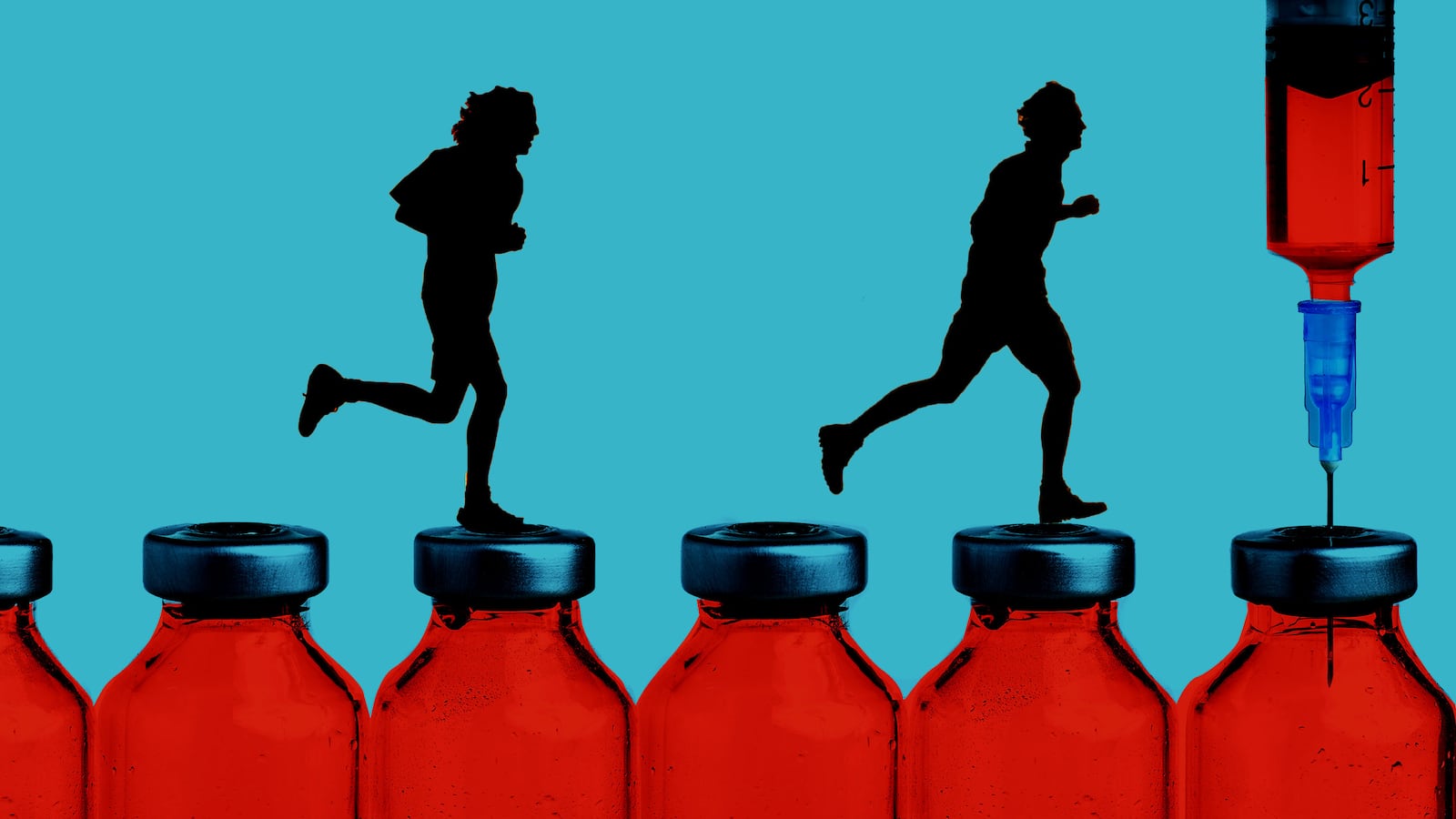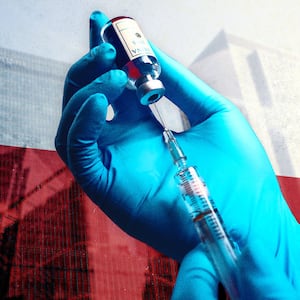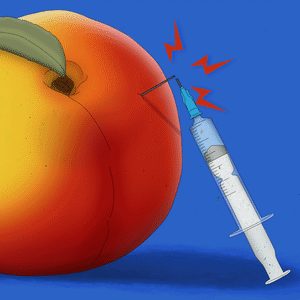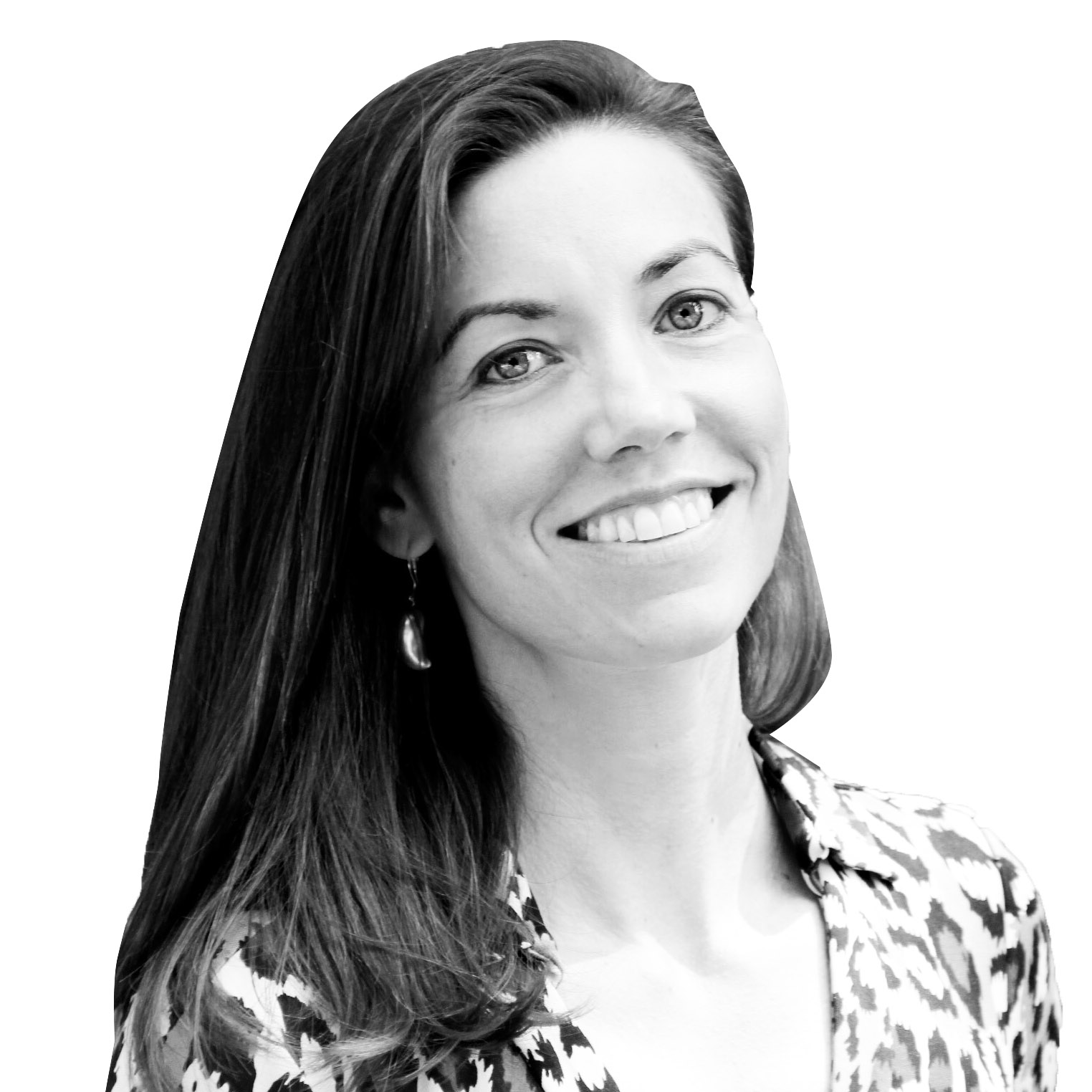Like many Facebook posts, this one started with a rumor.
Late on Saturday night, a 33-year-old mom wrote in a Facebook group for Queens, New York, parents that she’d heard from friends that they’d managed to score leftover coronavirus vaccine doses by waiting outside hospitals at the end of the day.
“Has anyone done this in the area, and if so, where and how?” she wrote.
Hannah, a 34-year-old Queens resident, quickly responded that she’d used this strategy at a hospital in Indiana, where she’d been staying with her family for the last few months.
“It was scary to stand outside that hospital. I felt like a crackhead. Like, ‘Hey, you got something for me?’” Hannah, who spoke on the condition of anonymity over concern about legal repercussions for what she had done, later told The Daily Beast.
But the strategy worked, Hannah wrote, and she now had an appointment for her second vaccination. Dozens of comments from other parents followed, many talking about how they might make secure their own spot earlier in the line for relief from pandemic terror.
In the month since the federal government approved the Pfizer and Moderna vaccines, twenty- and thirty-somethings in this country, who tend to be healthy and at low risk for complications from COVID-19, have found themselves at the back of the line when it comes to getting the shot. But some have managed to turn their age and wealth into an advantage, crowdsourcing ideas on social media and uncovering loopholes on state vaccine sites.
Both the problem of short shelf life and the unique loophole it creates are a built-in part of the COVID-19 vaccine. The Pfizer version must be stored at extremely low temperatures, thawed before use, and then injected within a few hours. The Moderna version also expires several hours after it’s been prepared for use. Last week, New York Gov. Andrew Cuomo faced intense criticism after clinics and hospitals in his state reported throwing out leftover doses of the vaccine rather than pay the large fines the governor had threatened to impose on clinics that vaccinated ineligible people.
While stories of a lucky few stumbling into extra doses at pharmacies have been a hallmark of the vaccine rollout, some young people are employing more sophisticated strategies—and coming up with remarkable ways to justify their behavior.
“I don’t feel guilty because I didn’t take an elderly person’s shot,” said Hannah, who added that she had preexisting health conditions that make her higher risk but that she’d been given no indication she’d be eligible for the vaccine soon. “I took a shot that would have otherwise been discarded. Had that not been the case, I would have felt guilty. But I still would have done it.”
“I have a duty to protect myself. I’m young but I’m overweight,” she continued. “I have diabetes and lupus. I have a 15-month-old daughter. I’m not more special than anyone else, so if there’s a vaccine available that they didn’t take their chance, I’m here, I’m available, I need it."
Thomas Russo, an infectious disease expert at the Jacobs School of Medicine in Buffalo, questioned whether these efforts were actually in the public interest.
“It’s not optimal. If there are doses at the end of the day, we want to put it into the arms of people,” Russo said, acknowledging reports that vaccine doses had been thrown out. “But I’d rather see it go into the arms of people who are much older.”
“It’s not really in the spirit of what we’re trying to do.”
In recent weeks, national awe over the vaccine’s shockingly fast development has been replaced with national anger over the slowness and disorganization of its rollout. On Wednesday, the CDC reported that while 30 million doses of the COVID-19 vaccine had been distributed across the United States, just over 10 million doses had actually been administered, meaning around 20 million were either sitting unused in clinic freezers or getting tossed.
Russo told The Daily Beast that the federal government should have created a standby system, to alert those in higher priority categories about extra doses at the end of each day. But no such system currently exists, and until it does, some of these 20- and 30-year-olds say that what they’re doing is, essentially, creating their own.
“It just seemed that with the lack of infrastructure or organization provided by our government, as a private citizen, I’m trying to fill in the gap, to make sure that no vaccines are wasted,” said Brad Johnson. The 28-year-old New Orleans resident earlier this week created the Facebook group NOLA Vaccine Hunters to both crowdsource information from others in his city and the pharmacies and clinics that would have the extra doses.
But Johnson, a second-year medical student at Tulane University who is also working on a master's in public health there, breaks from Russo when it comes to who should be in the standby groups.
“From what I know, a lot of the spread is being shared by young people who feel invincible. They’re the ones traveling to see their parents, and the vaccines aren’t available to us. In fact, young ones are the last ones in these prioritization groups, while scientists are expressing that we’re the ones likely spreading it.”
Some public health experts agree with Johnson’s take. Last week, a senior administration official told The Daily Beast he thought that unused doses should go to anyone who wants them. And last month, Edwin Michael, an epidemiologist at the Center for Global Health Infectious Disease Research at the University of South Florida, put a finer point on this, telling The Daily Beast that vaccine doses should go to the young people most likely to spread it.
“So the other thing I’m trying to do with this group is make sure the vaccines become available to the educated and motivated young people who really want them. Why waste it?” said Johnson. He expects to receive a government-sanctioned vaccine through his medical school next week but said he’s committed to organizing for others in New Orleans, galvanized, in part, by reports out of other countries, like Israel, which has already inoculated nearly a quarter of its population. Earlier this week, the United States reached 3 percent.
So far, some young people appear extremely motivated.
Earlier this month, one friend of Johnson’s turned to Craigslist for a boutique version of crowdsourcing, posting a gig for someone who would drive to pharmacies in his state, asking about leftover doses, Johnson said.
“He was unable to find someone to do that work and was losing hope, even though I thought it was noble,” he added.
In Indiana, a 39-year-old man told The Daily Beast that after some digging, he’d found a major loophole on that state’s vaccine website. Only frontline health-care workers, first responders, or people over the age of 70 are eligible for the vaccine in the state. But according to a state website, these first responders can also include volunteers.
The 39-year-old, who refused to give his name, said he’d checked the box for “volunteer” and when he showed up for his shot, the clinic never asked him to prove his eligibility. In a text exchange shared with The Daily Beast, he told his wife it was “easy pizi.”
The Indiana Department of Health did not respond to a request for comment on this loophole on Thursday.
Of course, motivation isn’t the only factor making it more likely to get a vaccine. Having financial means or flexibility with work makes a huge difference.
“My heart breaks for all the people who are stuck at home, who don’t have the knowledge or the ability to stand in line and wait. It’s cold. It’s January and it’s hard to wait,” Hannah told The Daily Beast.
A 34-year-old Louisiana man who refused to provide his name told The Daily Beast that he’d flown to Texas this week for the vaccine. He’d discovered that while a preexisting condition he has did not yet make him eligible for a shot in his home state, it did next door.
“I go the extra mile in so many parts of my life, so this isn’t really that different,” he told The Daily Beast in a text message. “But I also have the ability to. I think that is a large part of it.”
“My work is flexible enough to be able to leave at the drop of a hat to get anywhere that I could possibly get [a vaccine dose]. I think it is more of the continued inequality of American healthcare.”
And this inequality, he said, was a big part of the reason he said he and others aren’t yet comfortable with their efforts becoming publicly known.
“I am not [unique]. I think people with means are doing this slyly,” he continued. “I had a phone conversation with a friend this morning who is doing the same thing. We agreed we weren’t going to tell anyone that we got the vaccine.”
“It could look bad.”
Hannah said she knows that some people might call what she did “gaming the system.” But she doesn’t have any regrets. In fact, she said she’d like to see more younger Americans talking about ways to access the vaccine.
Still, she said, while she knows the first dose would have been thrown out if she hadn’t been there to take it, she does sometimes think about the second dose, which she was scheduled to receive when she got her first, just like the older people at the site were.
“As far as the second dose is concerned.… I hope that in 28 days they’ve gotten their shit together, and if so, I will not feel guilty. But if we’re still as much of a cluster fuck as we are right now in terms of getting people vaccinated, then there will be a part of this that will weigh heavy on my heart.”
“But at the end of the day, to be only 50 percent protected—if I’m going to contribute to herd immunity, I need to do my part in full.”



